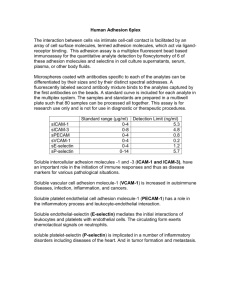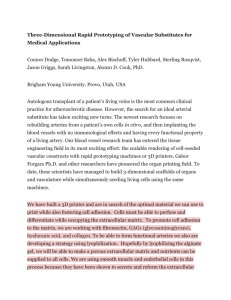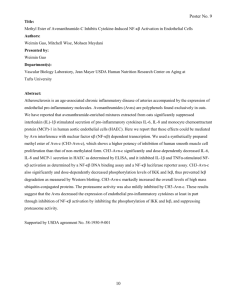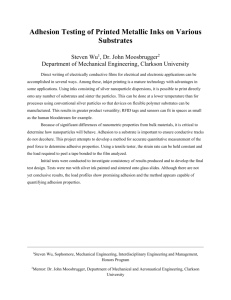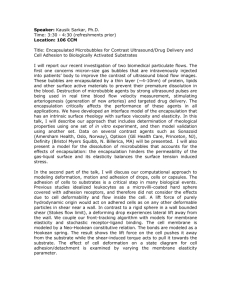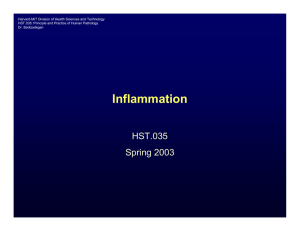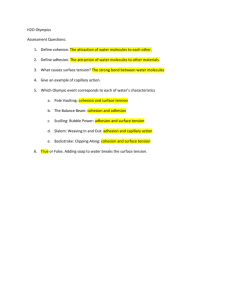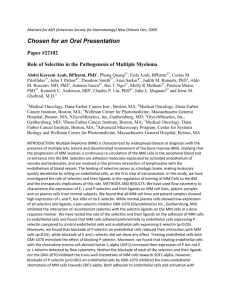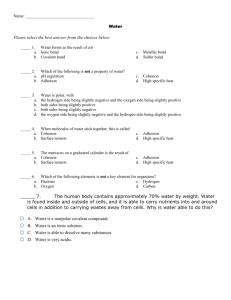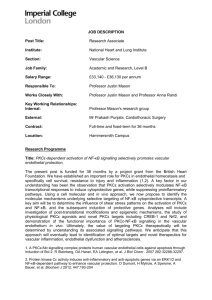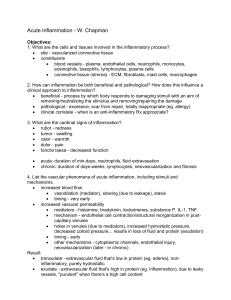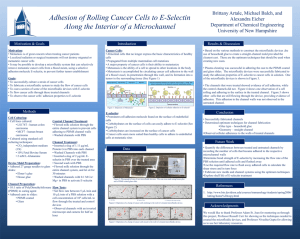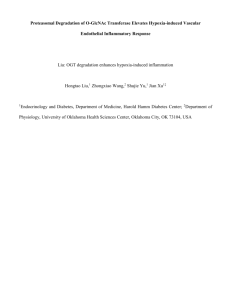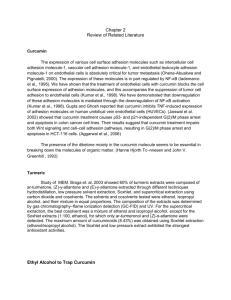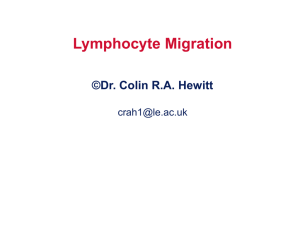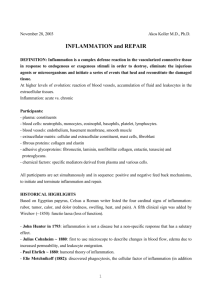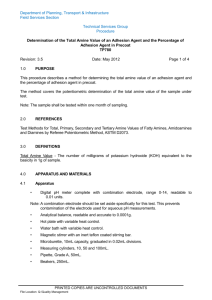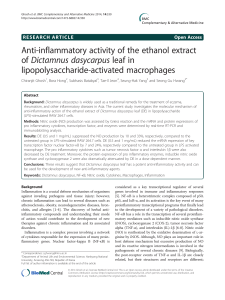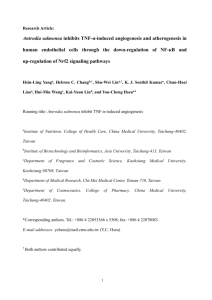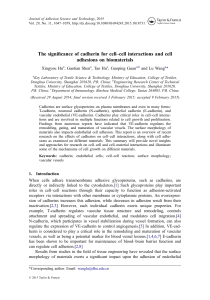gambogic acid inhibits adhesion molecule expression and nf
advertisement
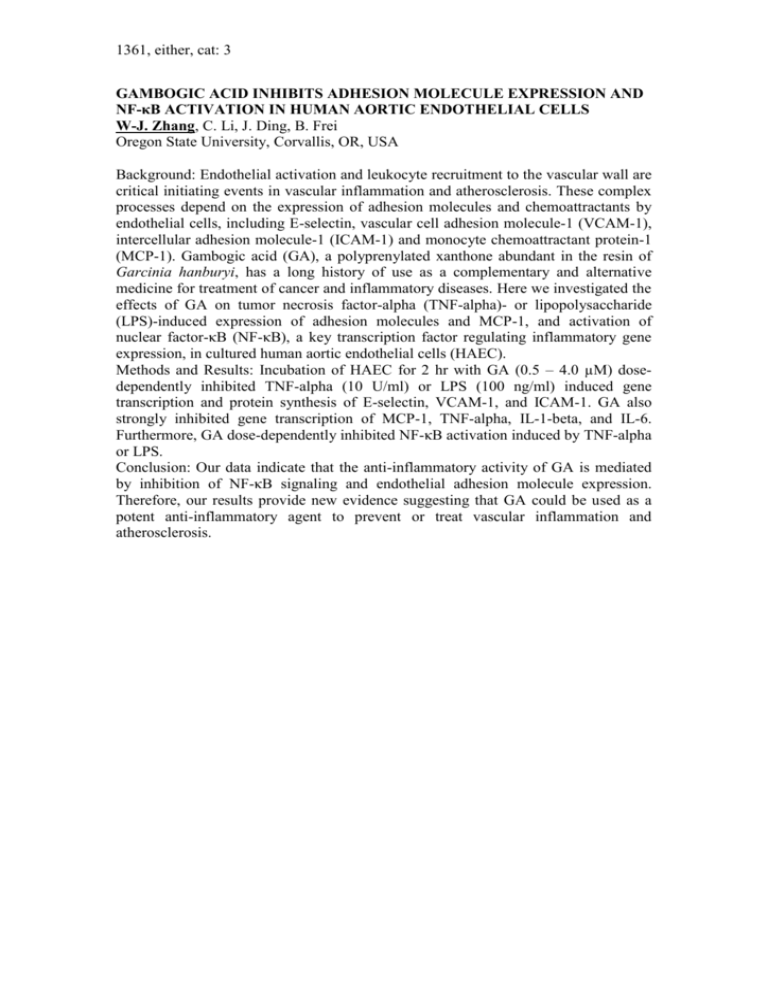
1361, either, cat: 3 GAMBOGIC ACID INHIBITS ADHESION MOLECULE EXPRESSION AND NF-κB ACTIVATION IN HUMAN AORTIC ENDOTHELIAL CELLS W-J. Zhang, C. Li, J. Ding, B. Frei Oregon State University, Corvallis, OR, USA Background: Endothelial activation and leukocyte recruitment to the vascular wall are critical initiating events in vascular inflammation and atherosclerosis. These complex processes depend on the expression of adhesion molecules and chemoattractants by endothelial cells, including E-selectin, vascular cell adhesion molecule-1 (VCAM-1), intercellular adhesion molecule-1 (ICAM-1) and monocyte chemoattractant protein-1 (MCP-1). Gambogic acid (GA), a polyprenylated xanthone abundant in the resin of Garcinia hanburyi, has a long history of use as a complementary and alternative medicine for treatment of cancer and inflammatory diseases. Here we investigated the effects of GA on tumor necrosis factor-alpha (TNF-alpha)- or lipopolysaccharide (LPS)-induced expression of adhesion molecules and MCP-1, and activation of nuclear factor-κB (NF-κB), a key transcription factor regulating inflammatory gene expression, in cultured human aortic endothelial cells (HAEC). Methods and Results: Incubation of HAEC for 2 hr with GA (0.5 – 4.0 µM) dosedependently inhibited TNF-alpha (10 U/ml) or LPS (100 ng/ml) induced gene transcription and protein synthesis of E-selectin, VCAM-1, and ICAM-1. GA also strongly inhibited gene transcription of MCP-1, TNF-alpha, IL-1-beta, and IL-6. Furthermore, GA dose-dependently inhibited NF-κB activation induced by TNF-alpha or LPS. Conclusion: Our data indicate that the anti-inflammatory activity of GA is mediated by inhibition of NF-κB signaling and endothelial adhesion molecule expression. Therefore, our results provide new evidence suggesting that GA could be used as a potent anti-inflammatory agent to prevent or treat vascular inflammation and atherosclerosis.
